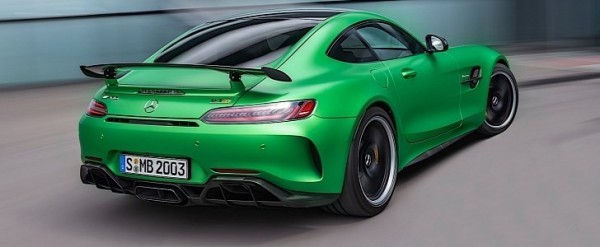
“Over 90 percent [of customers] chose all-wheel drive,” said Moers, who gives the current generation of the E 63 as the perfect formula. “With Drift Mode, you have a real RWD car but with all-wheel drive as well.” The W213 is joined by the F90 from BMW, which also has a driving mode that sends 100 percent of the available resources to the rear wheels.
Turning our attention back to the original question, the answer is yes. “When I ask customers about the GT, they ask me about all-wheel drive. People in Munich, for example, always, always ask for all-wheel drive – I think it’s for safety and stability,” concluded Moers.
AWD is safer in rainy conditions, but nevertheless, rear-wheel drive remains the staple as far as the most enthusiastic of drivers are concerned. On the upside, more traction equals better acceleration. The GT 4-Door Coupe needs 3.2 seconds to hit 100 km/h (62 mph) while the GT R Pro hits that speed in 3.6 seconds despite a considerable advantage in terms of weight.
There’s no denying that Mercedes-AMG will get softer by adopting AWD throughout the range, but nevertheless, this solution works wonders in the twisties and in a straight line. R&D boss Thomas Weber has confirmed that Mercedes-AMG would also embrace hybridization.
On the one hand, 48-volt electric boost delivers a surplus of performance. And on the other hand, such a system helps the German automaker cut back on CO2 emissions. Daimler AG has a target of 101 grams per kilometer by 2020, and as such, 95 percent of the sales volume will need to conform. In case Daimler AG misses the target, hefty fines would follow.



Leave a Reply